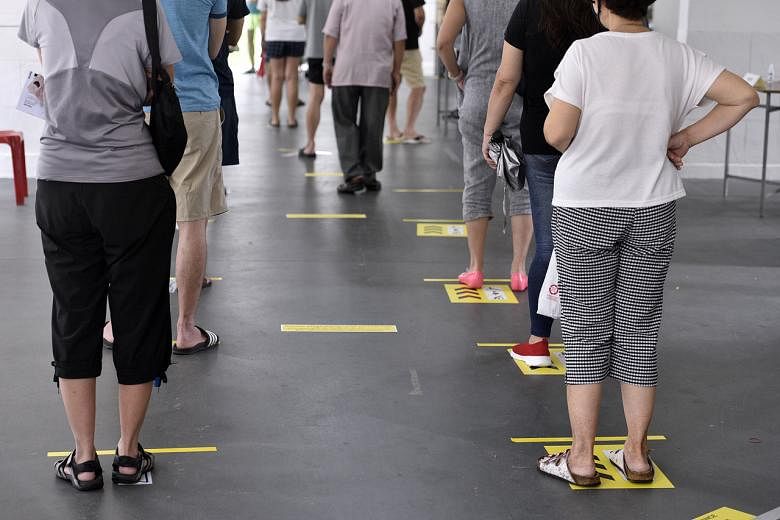SINGAPORE - The Elections Department (ELD) on Thursday (Sept 10) set out several improvements it will make to its processes for future elections to avoid the long queues seen at some polling stations during the recent general election.
These include increasing its pool of reserve election officials and equipment, reducing the number of voters at large polling stations and reviewing the need for time bands.
"We recognise that the GE2020 precautionary measures, while intended to protect public health and safety, reduced the voting efficiency for Singapore voters and led to sustained queues at some polling stations," the ELD said in a statement.
The department will increase its pool of reserve election officers, so they can be quickly deployed to polling stations to help handle contingencies such as unforeseen build-ups in queues.
It will also provide more e-registration devices, which, it noted, have generally sped up the registration process. This will also ensure that faulty devices can be quickly replaced.
The procurement of these devices for GE2020 was done before the Covid-19 outbreak, it said. The vendor was not able to supply more devices in time when the number of polling stations was later increased to allow for safe distancing.
Large polling stations will be split up wherever feasible, the ELD added.
It noted that for GE2020, larger stations in Housing Board block void decks and pavilions were split due to the small available space, but those in schools as well as community clubs and centres were not.
If it is not feasible to split a polling station up due to a lack of alternative premises in the area, the larger stations will be better organised and given more resources such as additional manpower and equipment, the ELD said.
It will also review the use of time bands to spread out voters throughout the day.
If the ELD decides to continue allocating time bands to voters, fewer voters will be allocated to the morning slots, it said.
This is to provide a more comfortable buffer for other voters who vote outside their time band as voters generally prefer to vote in the morning, it noted.
"In retrospect, we should not have concentrated all senior voters in the morning. Going forward, we will see how best to spread out senior and non-senior voters across time bands," said the ELD.
"Given our ageing population, we will also review the logistics such as wheelchairs and availability of seats, and the location and set-up of our polling stations to ensure that they are well accessible to our senior voters."
Despite the issues faced by voters in GE2020, the ELD noted that the precautionary measures it implemented were necessary and effective.
The local voter turnout was the highest it has been since GE1997, at 95.63 per cent, it said.
There were no reported Covid-19 community cases affecting voters and election officials as a result of their participation in GE2020, the ELD added.


